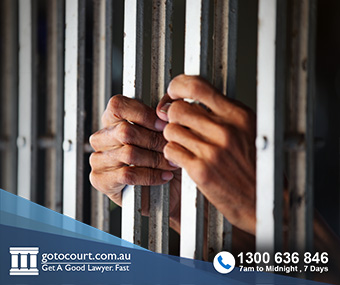Imprisonment (WA)
Imprisonment is the most severe penalty that Western Australian courts can impose. It is a sentence of last resort and must only be imposed where no lesser penalty is appropriate. Sentences of imprisonment can be suspended where the court considers this appropriate and prisoners can apply for parole once they become eligible. People in Western Australia can also be imprisoned if they have been refused bail or if they have failed to pay fines.
There are 16 government-run prisons and one private prison in Western Australia, housing over 6,000 adult prisoners. Offenders between 10 and 18 can be sentenced to youth detention. Western Australia has one custodial facility for young people.
Imprisonment in Western Australia is governed by the Sentencing Act 1995 and the Prisons Act 1981.
Remand
If a person is refused bail after being charged with criminal offences, they will be kept in prison on remand until the charges are finalised. If they are found guilty and sentenced to imprisonment, the time they have already spent in prison on remand will be taken into account when the term of imprisonment is imposed.
Sentences of imprisonment
A court can sentence an offender to imprisonment when he or she has been found guilty of an offence which carries imprisonment. Under Section 35 of the Sentencing Act, a court must give written reasons when sentencing a person to imprisonment. These reasons must explain why no other sentencing option was appropriate.
Western Australian courts cannot impose a sentence of imprisonment unless the aggregate term imposed is 3 months or more. The exception to this is where the person is already serving a sentence of imprisonment (Section 86).
Parole
Where a court imposes a sentence of imprisonment of six years or less, the offender is eligible to be released on parole after serving one third of the term. If the term imposed is more than six years, the offender is eligible for parole when he or she has served two years less than two thirds of the term.
When a prisoner becomes eligible for parole, he or she can apply to the Prisoners Review Board of Western Australia (formerly the Parole Board) to be allowed to serve the remainder of their sentence in the community. The Board will grant this request if it considers they are not an unacceptable risk to the community.
Indefinite imprisonment
When the Supreme Court or District Court sentences a person to a term of imprisonment, it may also make an order that the person be imprisoned indefinitely (Section 98). This order can only be made if the court is satisfied that the release of the offender would be a danger to society because of:
• The exceptional seriousness of the offence;
• The risk they will commit other serious offences;
• The character of the offender, including any mental or physical conditions affecting them and the number of other offences they have been found guilty of;
• Any other exceptional circumstances.
A person sentenced to indefinite imprisonment may be released by way of a parole order (Section 101).
Mandatory sentencing
In Western Australia, a mandatory sentencing regime imposes mandatory minimum sentences for particular offences, such as home burglaries and assaults on custodial officers. Home burglary offences that involve serious physical or sexual violence must be dealt with by a sentence of at least 75% of the maximum term applicable to the offence and where the maximum penalty is life imprisonment, a minimum of 15 years imprisonment must be imposed for an adult and a minimum of three years for a juvenile.
Mandatory minimum sentences have been progressively introduced in response to public pressure for the government to be ‘tough on crime’ and a perception that sentences handed down are too lenient. Mandatory sentencing laws in WA have brought an increase in the incarceration rate, particularly for Indigenous people. Both the Law Council and the Law Society of Western Australia have consistently opposed mandatory sentencing in any form, saying it is ineffective as a deterrent and undermines the independence of the judiciary.
Security classification
Where a prisoner is held will depend on their security rating, any health issues they have and what education or rehabilitation programs they would benefit from. Where the prisoner’s family and friends are will also be a factor in deciding where to hold a prisoner. A prisoner can progress from maximum through to minimum security based on good behaviour and participation in programs, however other factors such as the type of offending and the person’s history will also be taken into account.
Visiting someone in prison
All WA prisons allow visitors, but visiting hours vary depending on whether the prisoner is on remand or serving a sentence. Appointments to visit should be made 24 hours in advance.
Visitors must present ID when visiting and will be subjected to a search when entering the prison. This may consist of a metal detector, drug particle detector, pat-down search or strip search. Visitors are required to adhere to a dress code and a code of conduct.
If you require legal advice or representation in relation to a criminal matter or any other legal matter, please contact Go To Court Lawyers.








